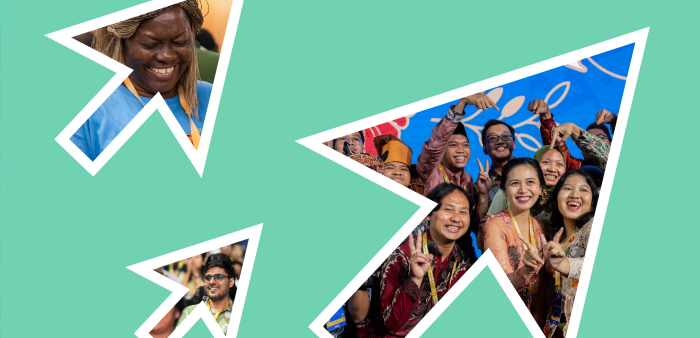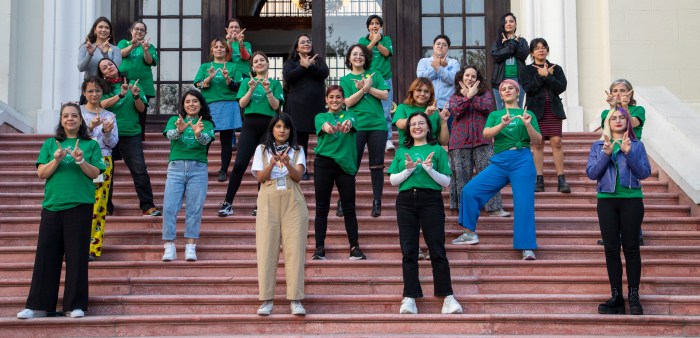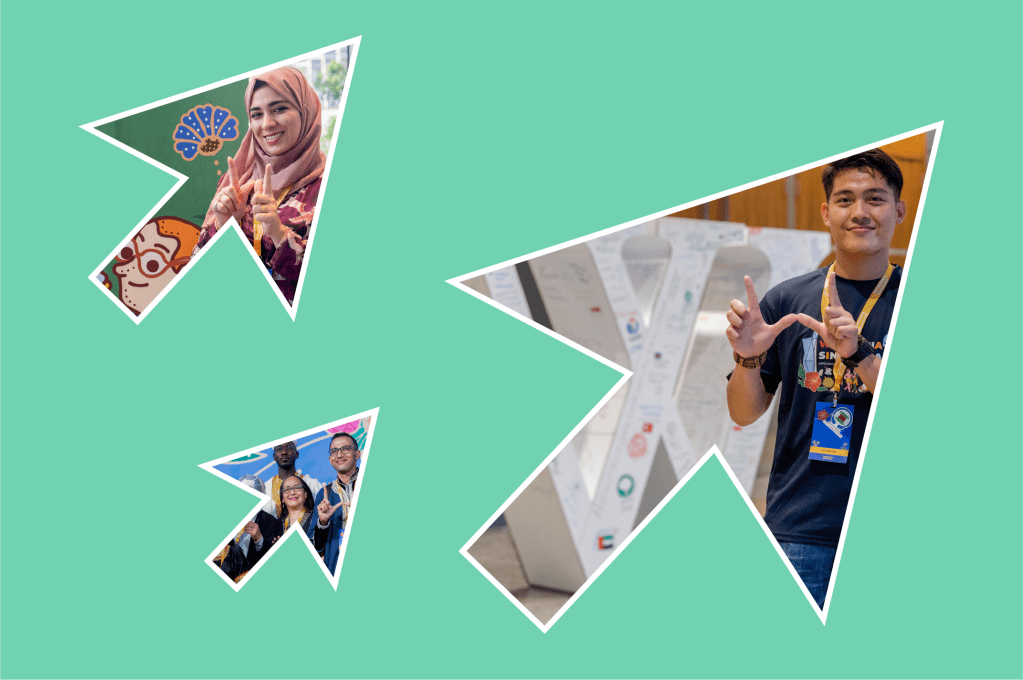23 April 2024 — Today, the Wikimedia Foundation, the nonprofit organization that operates Wikipedia and other Wikimedia projects, along with 12 Wikimedia affiliates, published an open letter calling on United Nations (UN) Member States to include commitments in the forthcoming Global Digital Compact that can allow online public interest projects, such as Wikipedia, to thrive. By protecting these projects and the communities that create them, the international community can ensure that the digital environment advances sustainable development and human rights.
The Global Digital Compact, which is being developed through a consultation process involving governments, the UN system, the private sector, civil society, grassroots organizations, academia, and individuals, aims to “outline shared principles for an open, free, and secure digital future for all.” It is the most comprehensive attempt ever at creating a vision for a shared approach to governing digital technologies. Set to be agreed at the Summit of the Future in September, this compact among UN Member States will help structure the future of digital cooperation and regulation for many countries around the world.
The letter released today highlights how Wikipedia’s community-governed model can serve as a roadmap for a better internet. Wikipedia is made and maintained by a global community of over 265,000 volunteer contributors who set and enforce policies to ensure that information on the platform is fact-based, neutral, and attributed to reliable sources. Over the last 20 years, Wikipedia’s human-centered content moderation model has established an unparalleled resource for reliable information in over 300 languages; its 62 million articles are viewed more than 15 billion times per month worldwide. Volunteers vigilantly defend against information that does not comply with the rules that they themselves have established and agreed upon. Furthermore, their volunteer-led process of content moderation is open and transparent.
Wikipedia is also the only website in the top-ten most-visited global websites to be run by a nonprofit organization, the Wikimedia Foundation. The letter’s signatories, which include the Wikimedia Foundation and Wikimedia affiliates, are calling on the drafters of the Global Digital Compact to include three key commitments that can help ensure an open, global, interoperable, and inclusive internet upon which public interest projects such as Wikipedia, and the people who create them, depend:
- Protect and empower communities to govern online public interest projects.
Free knowledge projects such as Wikipedia should not be rare. UN Member States should — through regulation, public policy, funding, and other resources — support a world where diverse online communities can build and govern their own public interest projects, designing them to be equitable and contributing to a healthier online information ecosystem.
- Promote and protect digital public goods by supporting a robust digital commons from which everyone, everywhere can benefit.
Digital public goods such as Wikipedia and other Wikimedia projects aim to make multilingual and intercultural information freely accessible to everyone. A thriving public domain that enables the sharing of free and openly licensed content for everyone to use and reuse is key to advancing many Sustainable Development Goals (SDGs).
- Build and deploy Artificial Intelligence (AI) and machine learning (ML) to support and empower, not replace, people who create content and make decisions in the public interest.
AI and machine learning tools should support, and not replace, the work of humans. They should be designed and deployed in a manner consistent with international human rights standards, ensuring clear and consistent attribution. Such tools should also ensure participation and control by affected communities through transparent, accountable, and open processes.
Read more about these commitments in our open letter.
“As the world’s largest repository of human knowledge online, Wikipedia powers today’s digital knowledge ecosystem. It is one of the most important sources for training Large Language Models, and much of the information available from internet search engine results, voice assistants, and more comes from content on Wikimedia projects,” said Rebecca MacKinnon, VP of Global Advocacy at the Wikimedia Foundation. “Through the Global Digital Compact, we have the opportunity to safeguard the best of the internet — open, community-led online spaces that are built in the public interest. We’re calling on UN Member States to embrace these three commitments. In doing so, they will not only protect Wikipedia; they will protect the right of communities anywhere in the world to build new online projects that serve the public interest in a manner that is responsible, ethical, and inclusive.”
“The Global Digital Compact represents a critical moment for everyone who contributes to and cares about Wikipedia to shape and safeguard the internet we desire,” said Patricia Díaz Rubio, Executive Director of Wikimedia Chile, one of a dozen Wikimedia affiliates to sign onto the letter. “We urge other Wikimedia affiliates and volunteers to seize this opportunity to secure a global agreement that protects and empowers online communities, promotes digital public goods and commons, and harnesses the transformative power of emerging technologies in a way that serves the public interest.”
The publication of today’s open letter builds on efforts from the Wikimedia Foundation over the last two years to help shape the Global Digital Compact, including input into a number of consultations and a comprehensive written submission in April 2023.
Organizations and individuals committed to supporting the future of online public interest projects are encouraged to sign the letter*in support. To learn more, see this blog.
About the Wikimedia Foundation
The Wikimedia Foundation is the nonprofit organization that operates Wikipedia and other Wikimedia free knowledge projects. Our vision is a world in which every single human can freely share in the sum of all knowledge. We believe that everyone has the potential to contribute something to our shared knowledge and that everyone should be able to access that knowledge freely. We host Wikipedia and the Wikimedia projects, build software experiences for reading, contributing, and sharing Wikimedia content; support the volunteer communities and partners who make Wikimedia possible. The Wikimedia Foundation is a United States 501(c)(3) tax-exempt organization with offices in San Francisco, California, USA.
For media inquiries, please contact press@wikimedia.org.
About Wikimedia affiliates
Wikimedia affiliates are a global network of groups that support Wikipedia, Wikimedia projects, and the mission of sharing free knowledge globally. They range from more formally established groups, like chapters, which often have their own staff and governance systems, to more informal groups of volunteers, such as user groups. There are currently 188 Wikimedia affiliates around the world.
*To sign the letter, please complete this Google Form. For details on how the information you share in this form will be handled, see this privacy statement.
Related content
Open letter to protect Wikipedia and other public interest projects in the Global Digital Compact
Sign the letter
Visit our Advocacy page and learn more about our initiatives
Learn more

